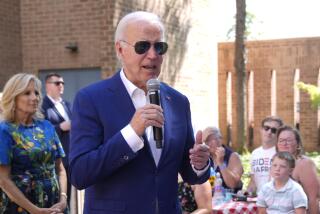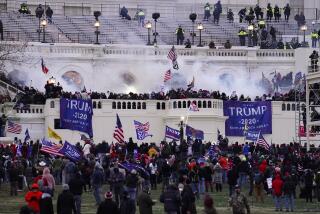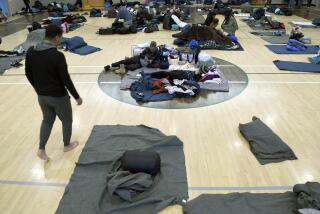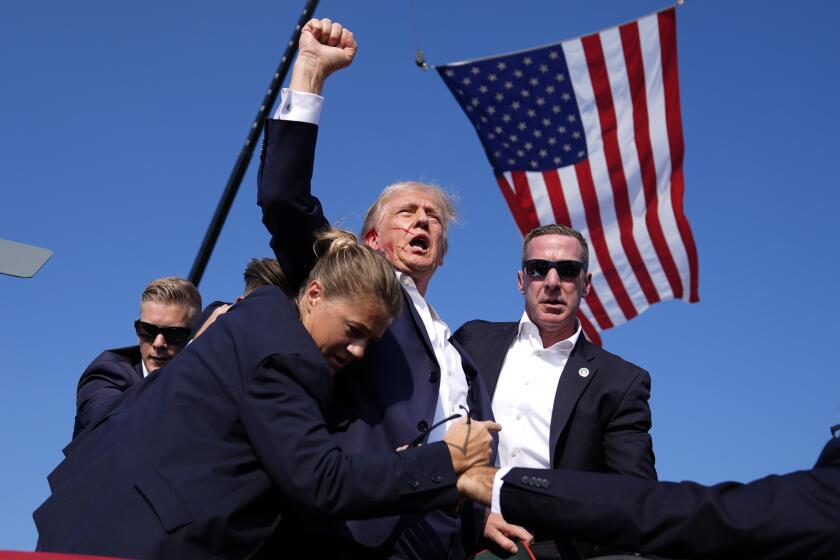New ‘sanctuary city’ threat by Trump administration sparks fresh fight with mayors
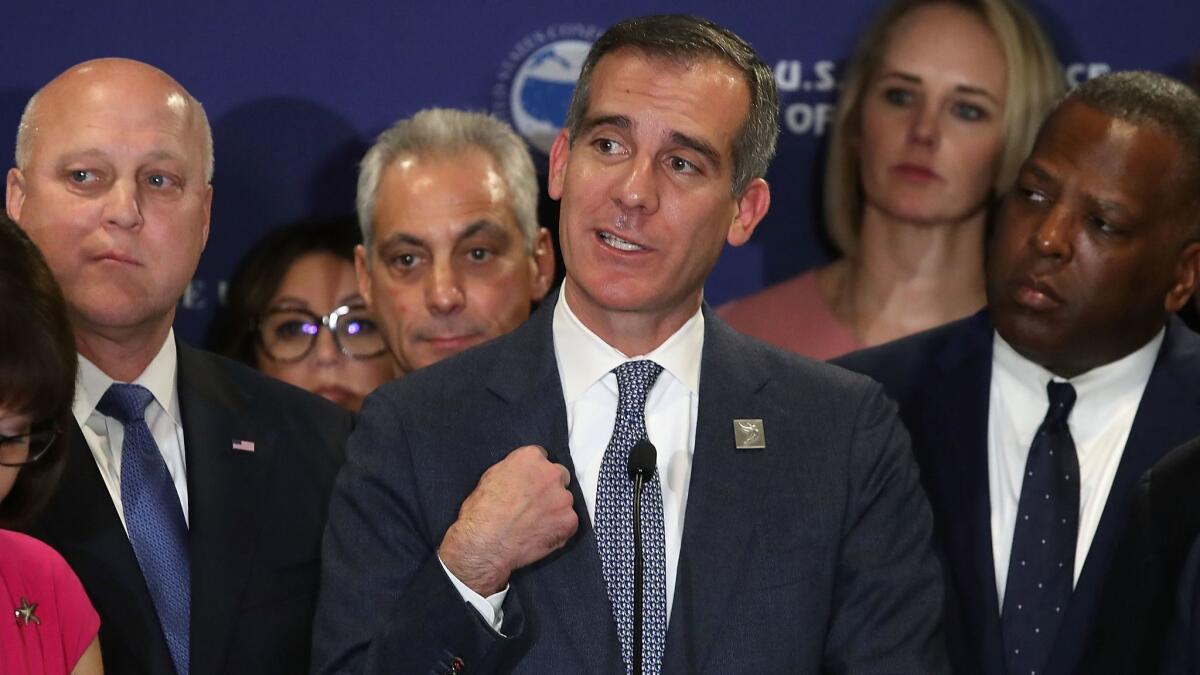
Reporting from Washington — Eager to show that his administration could provide leadership on two of the nation’s biggest issues, President Trump scheduled a White House meeting to talk with America’s mayors on infrastructure and opioids.
Instead of showcasing an initiative that Trump has touted, the meeting became another battleground in the fierce year-long fight over illegal immigration. The mayors of New York, Chicago and New Orleans, all Democrats, boycotted after the Justice Department sent threatening letters Wednesday morning to 23 states, cities and counties over their sanctuary policies.
The letters demanded records showing whether police or corrections agencies are sharing information with federal agents about the immigration status of people in their custody. If the cities don’t comply, the department said, it will issue subpoenas or cut off certain federal grant funds.
The administration insists that cities and counties have an obligation to notify Immigration and Customs Enforcement when an undocumented person is about to be released from jail.
“We have seen too many examples of the threat to public safety represented by jurisdictions that actively thwart the federal government’s immigration enforcement — enough is enough,” Atty. Gen. Jeff Sessions said in a statement on Wednesday.
Some police chiefs and mayors argue that complying with the Justice Department’s requests would actually undermine public safety, by driving immigrants underground and making them reluctant to talk to police.
The letters were met with defiance by some big-city leaders, who were in Washington for the annual meeting of the U.S. Conference of Mayors.
“I will NOT be attending today’s meeting at the White House after @realDonaldTrump’s Department of Justice decided to renew their racist assault on our immigrant communities,” tweeted New York Mayor Bill de Blasio, who had been on the invite list.
“It doesn’t make us safer and it violates America’s core values.”
Los Angeles Mayor Eric Garcetti, who had not been invited to the White House, derided the latest letters as empty threats and “nothing but a distraction.”
“We’ve often had to help each other out. Rahm, today we may have to bail each other out,” Garcetti said in remarks at the mayors’ conference, nodding to Chicago Mayor Rahm Emanuel.
Trump often railed against sanctuary policies during the campaign, and a crackdown on sanctuary jurisdictions was one of his first actions as president. Sessions has repeatedly denounced the policies as a hazard to public safety and has used the leverage of justice grants to pressure cities into compliance.
But little concrete has happened. The cities fought back with court challenges, and federal judges in San Francisco and Chicago have issued rulings that sharply limited the administration’s attempt to tie grant funds to cooperation with immigration enforcement.
“The idea that you are also going to take leaders, mayors, and put them in legal and criminal jeopardy because there’s a disagreement … it is really an amazing take for the attorney general to disregard what the court system has already said uniformly from coast to coast,” Emanuel said during a news conference at the mayors meeting.
The latest letters from the Justice Department, particularly the threat of subpoenas, inflamed the dispute.
“Unfortunately, the Trump administration’s decision to threaten mayors and demonize immigrants yet again — and use cities as political props in the process — has made this meeting untenable,” said New Orleans Mayor Mitch Landrieu, president of the mayors’ group.
The White House shot back in a statement saying: “We are disappointed that a number of mayors have chosen to make a political stunt instead of participating in an important discussion with the president and his administration.”
About 100 mayors and others did attend the meeting. Trump called the Justice Department letters a “critical legal step” and criticized the no-shows.
“The mayors who chose to boycott this event have put the needs of criminal, illegal immigrants over law-abiding America,” Trump said. “So let me tell you, the vast majority of people showed up.”
The letters from the Justice Department seek all documents “reflecting any orders, directives, instructions or guidance to your law enforcement employees” related to how they may share information with federal agencies.
As leverage, the department is using about $380 million in so-called justice assistance grants, which fund programs including drug treatment and prisoner reentry. Trump’s threats to withhold other federal funds from sanctuary jurisdictions have been blocked by the courts.
The governments that received the letters include the states of California, Illinois and Oregon; Chicago and Cook County, Ill.; New York; Los Angeles; San Francisco; Monterey, Sacramento and Sonoma counties; and the cities of Berkeley, Fremont and Watsonville, Calif.
California adopted a “sanctuary” law restricting cooperation by law enforcement, but it does allow corrections workers to work with federal immigration agents. California Atty. Gen. Xavier Becerra said Wednesday that California jurisdictions already are complying with the federal rules.
In an interview, Garcetti stressed that point as well.
“We abide by the Constitution, and we’ve answered every call for information since this administration began,” he said. “The letter they wrote seemed like a letter from a two-bit collection agency threatening to get their money. It’s mind-boggling, it’s all show.
“It’s an invented fight to stir the hyper-partisan leanings of certain people in this administration.”
Times staff writer Patrick McGreevy and Sarah D. Wire, New York Daily News writers Erin Durkin and Jillian Jorgensen and Chicago Tribune writers John Byrne and Katherine Skiba contributed to this report.
Twitter: @jtanfani
UPDATES:
4 p.m.: This article was updated with an additional comment from Mayor Garcetti.
The article was originally published at 3:20 p.m.
More to Read
Get the L.A. Times Politics newsletter
Deeply reported insights into legislation, politics and policy from Sacramento, Washington and beyond. In your inbox three times per week.
You may occasionally receive promotional content from the Los Angeles Times.
